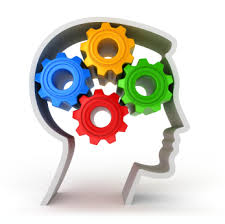Depression Symptoms & Warning Signs
How to Recognize Depression Symptoms and Get Effective Help
The normal ups and downs of life mean that everyone feels sad or has "the blues" from time to time. But if emptiness and despair have taken hold of your life and won't go away, you may have depression. Depression makes it tough to function and enjoy life like you once did. Just getting through the day can be overwhelming. But no matter how hopeless you feel, you can get better. Understanding the signs, symptoms, causes, and treatment of depression is the first step to overcoming the problem.
What is depression?
Sadness or downswings in mood are normal reactions to life’s struggles, setbacks, and disappointments. Many people use the word “depression” to explain these kinds of feelings, but depression is much more than just sadness.
Some people describe depression as “living in a black hole” or having a feeling of impending doom. However, some depressed people don't feel sad at all—they may feel lifeless, empty, and apathetic, or men in particular may even feel angry, aggressive, and restless.
Whatever the symptoms, depression is different from normal sadness in that it engulfs your day-to-day life7
What are the signs and symptoms of depression?
Depression varies from person to person, but there are some common signs and symptoms. It’s important to remember that these symptoms can be part of life’s normal lows. But the more symptoms you have, the stronger they are, and the longer they’ve lasted—the more likely it is that you’re dealing with depression. When these symptoms are overwhelming and disabling, that's when it's time to seek help.
Depression and Suicide
Depression is a major risk factor for suicide. The deep despair and hopelessness that goes along with depression can make suicide feel like the only way to escape the pain. Thoughts of death or suicide are a serious symptom of depression, so take any suicidal talk or behavior seriously. It's not just a warning sign that the person is thinking about suicide: it's a cry for help.
If You Are Feeling Suicidal...
When you’re feeling extremely depressed or suicidal, your problems don’t seem temporary—they seem overwhelming and permanent. But with time, you will feel better, especially if you reach out for help. If you are feeling suicidal, know that there are many people who want to support you during this difficult time, so please reach out for help!
The faces of depression
Depression often looks different in men and women, and in young people and older adults. An awareness of these differences helps ensure that the problem is recognized and treated.
Depression in men
Depression is a loaded word in our culture. Many associate it, however wrongly, with a sign of weakness and excessive emotion. This is especially true with men. Depressed men are less likely than women to acknowledge feelings of self-loathing and hopelessness. Instead, they tend to complain about fatigue, irritability, sleep problems, and loss of interest in work and hobbies. Other signs and symptoms of depression in men include anger, aggression, violence, reckless behavior, and substance abuse. Men have a higher suicide risk rate, especially older men.
Depression in women
Depression in women is due in part to hormonal factors, particularly when it comes to premenstrual syndrome (PMS), premenstrual dysphoric disorder (PMDD), postpartum depression, and perimenopausal depression. As for signs and symptoms, women are more likely than men to experience pronounced feelings of guilt, sleep excessively, overeat, and gain weight. Women are also more likely to suffer from seasonal affective disorder.
Postpartum depression
Many new mothers suffer from some form of the “baby blues.” Postpartum depression, in contrast, is a longer lasting and more serious depression triggered, in part, by hormonal changes associated with having a baby. Postpartum depression usually develops soon after delivery, but any depression that occurs within six months of childbirth may be postpartum depression.
Depression in teens
While some depressed teens appear sad, others do not. In fact, irritability—rather than depression—is frequently the predominant symptom in depressed adolescents and teens. A depressed teenager may be hostile, grumpy, or easily lose his or her temper. Unexplained aches and pains are also common symptoms of depression in young people.
Left untreated, teen depression can lead to problems at home and school, drug abuse, self-loathing—even irreversible tragedy such as homicidal violence or suicide. But with help, teenage depression is highly treatable.
Depression in older adults (Geriatrics)
The difficult changes that many older adults face—such as bereavement, loss of independence, and health problems—can lead to depression, especially in those without a strong support system. However, depression is not a normal part of aging. Older adults tend to complain more about the physical rather than the emotional signs and symptoms of depression, and so the problem often goes unrecognized. Depression in older adults is associated with poor health, a high mortality rate, and an increased risk of suicide, so diagnosis and treatment are extremely important.
Contact Dr. Gebrane's office today at +96171892737 or e-mail us today for more information.


